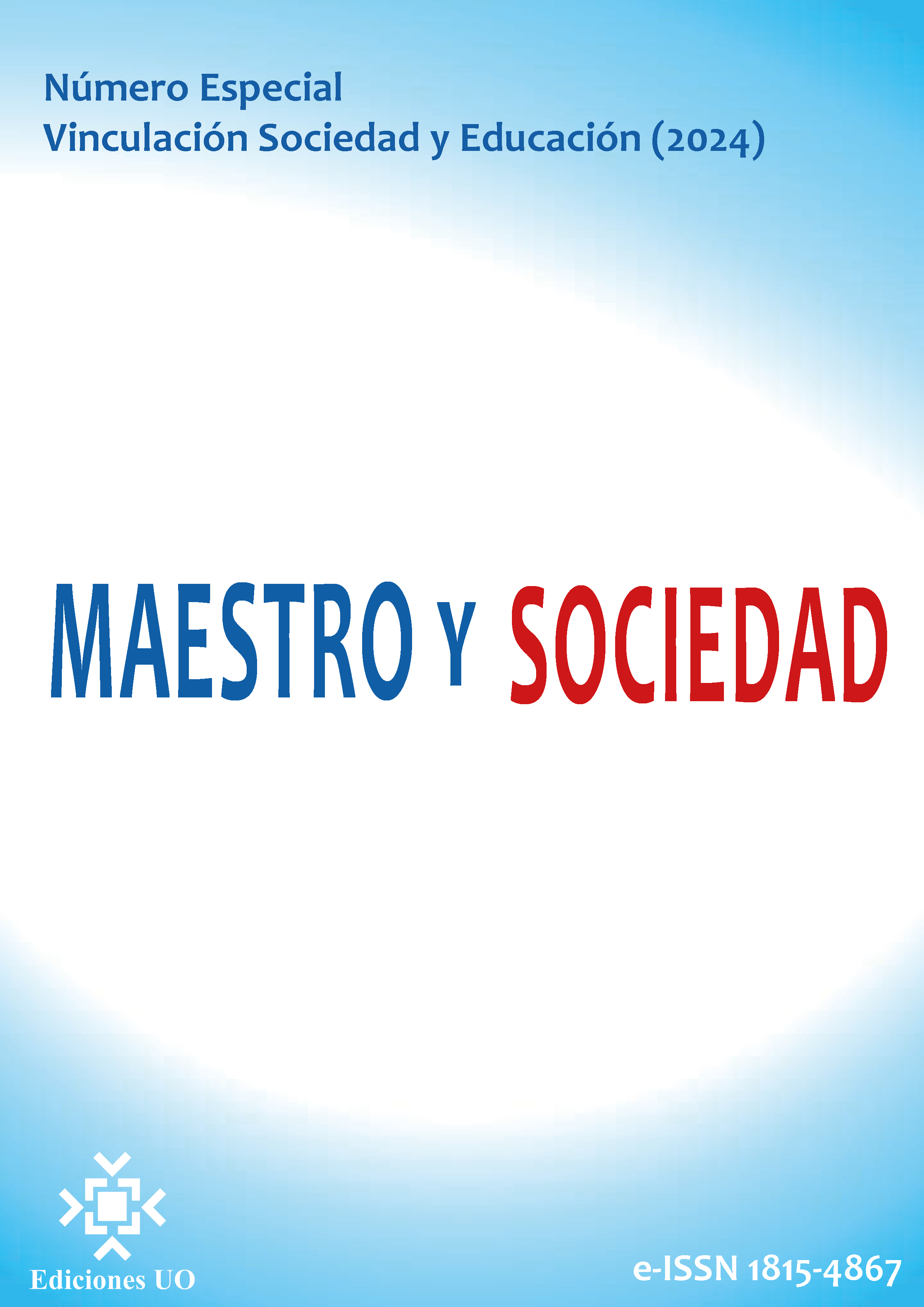Ecosystem care from collaborative, educational linkage work in San Isidro
Keywords:
environmental care, community values, educate for good livingAbstract
Introduction: The research shows how caring for the environment is of vital importance for human survival from collaborative work from concrete actions from the perspective of linking with society, therefore, it makes sense to care for the habitat, giving a new scenario to the future generations. Materials and methods: The methods used were quantitative and qualitative, in addition the Delhi method was used to consult experts regarding the topic, the dosed technique was the survey, the software used was SPSS27, the same one that helped obtain reliability through the Cronbach's alpha providing a reliability of 0.92. Results: The results made it possible to confirm that the care of the ecosystem is one of the great challenges that humanity and especially the trainers of the new generations have due to the testimony that they must evidence from collaborative praxis. Discussion: That it is not only living ecological values but also creating efficient strategies to care for the entire ecosystem from a team, linking it from the substantive processes that allow visualization through knowing, doing and being useful tools to reduce environmental deterioration . Conclusions: The topic investigated has made it possible to open new horizons at a higher level in tourism and hospitality students, in terms of the continuous improvement of the ecosystem, through real strategies that make it possible to care for habitat.
References
Barreto, V. (1994). El aprendizaje, enfoques y perspectivas. Editorial Interamericana.
Espejel Rodríguez, Adelina, & Flores Hernández, Aurelia. (2012). Educación ambiental escolar y comunitaria en el nivel medio superior, Puebla-Tlaxcala, México. Revista mexicana de investigación educativa, 17(55), 1173-1199. http://www.scielo.org.mx/scielo.php?script=sci_arttext&pid=S1405-66662012000400008&lng=es&tlng=es.
Estanga, C. (2005). Modelo de acción comunitaria para promover el rol del docente como autor y actor de las transformaciones en las organizaciones educativas. Candidus, 5(33), 31-32.
Ferrer, S. & Calvo, M. (2006). Experiencias del grupo de trabajo del CPR de fraga: Encuentros y convivencias deportivas para centro rurales en horario lectivo. En López Pastor, V. M. (Ed.). La educación física en la escuela rural. características, problemáticas y posibilidades: Presentación de experiencias prácticas de diferentes grupos de trabajo (153-158). Miño y Dávila.
Herrera Araya, D. & Ríos Muñoz, D. (2017). Educación ambiental y cultura evaluativa: Algunas reflexiones para la construcción de eco-consciencias. Estudios pedagógicos (Valdivia), 43(1), 389-403. https://dx.doi.org/10.4067/S0718-07052017000100022
Morachimo, L. (1999). La educación ambiental: tema transversal del currículo. Centro de Investigaciones y Servicios Educativos-Pontificia Universidad Católica del Perú.
Navarro, R. y Garrido, S. (2006). Construyendo el significado del cuidado ambiental: un estudio de caso en educación secundaria. Reice. Revista electrónica iberoamericana sobre calidad eficacia y cambio en educación, 4(1), 52-70. http://www.redalyc.uaemex.mx/pdf/551/55140106.pdf
Vargas, J. y Flecha, R. (2010). El aprendizaje dialógico como “Experto” en la resolución de conflictos. Contextos educativos, 3, 81-88.
Vega, P., Freitas, M., Álvarez, P. y Fleuri, R. (2009). Educación ambiental e intercultural para la sostenibilidad: fundamentos y praxis. Utopía y Praxis Latinoamérica: Revista Internacional de Filosofía Iberoamericana y Teoría Social, 44, 25-38. http://redalyc.uaemex.mx/pdf/279/2 7911649003.pdf.
Published
How to Cite
Issue
Section
License
Copyright (c) 2024 Lilia Moncerrate Villacis Zambrano, Elizabeth Del Carmen Ormaza Esmeraldas, Víctor Aurelio Mero Marcillo, Victor Manuel Roman Velez

This work is licensed under a Creative Commons Attribution-NonCommercial-NoDerivatives 4.0 International License.
This journal provides immediate open access to its content, based on the principle that offering the public free access to research helps a greater global exchange of knowledge. Each author is responsible for the content of each of their articles.



























 Universidad de Oriente
Universidad de Oriente 